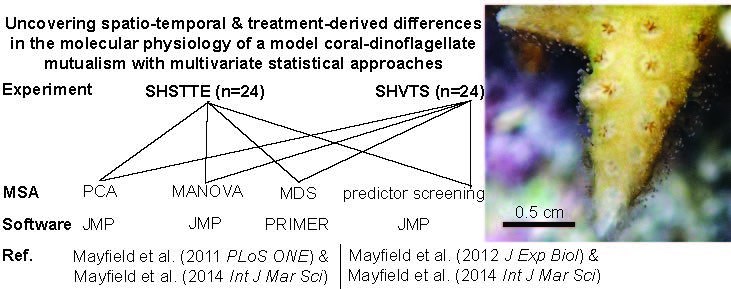Multivariate statistical approaches (MSA), such as principal components analysis and multidimensional scaling, seek to uncover meaningful patterns within datasets by considering multiple response variables in a concerted fashion. Although these techniques are readily used by ecologists to visualize and explain differences between study sites, they could theoretically be employed to differentiate organisms within an experimental framework while simultaneously identifying response variables that drive documented experimental differences. Therefore, MSA were used herein to attempt to understand the response of the common, Indo-Pacific reef coral Seriatopora hystrix to temperature changes using data from laboratory-based temperature challenge studies performed in Southern Taiwan. Gene expression and physiological data partitioned experimental specimens by time of sampling, treatment temperature, and site of origin upon employing MSA, signifying that S. hystrix and its dinoflagellate endosymbionts display physiological and molecular signatures that are characteristic of sampling time, site of colony origin, and/or temperature regime. These findings promote the utility of MSA for documenting biologically meaningful shifts in the physiological and/or sub-cellular response of marine invertebrates exposed to environmental change.

